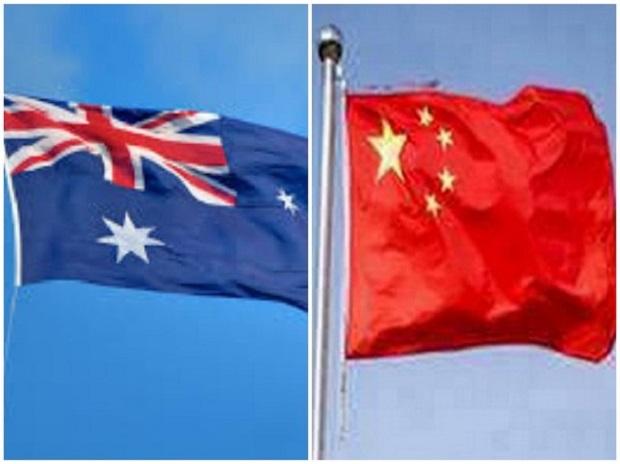Australian PM says WTO should punish Chinese economic coercion

The World Trade Organization should penalize bad behaviour when it occurs, Australia’s prime minister said Wednesday ahead of a Group of Seven leaders’ meeting in Britain where he hopes to garner support in a trade dispute with China.
Prime Minister Scott Morrison said Australia would be working with others to buttress the role of the World Trade Organization and to modernise its rulebook where necessary.
In my discussions with many leaders, I’ve taken great encouragement from the support shown for Australia’s preparedness to withstand economic coercion in recent times, Morrison said in a speech delivered in the Australian west coast city of Perth before leaving for the G7 meeting in Cornwall.
The Australian government announced in December it would ask the WTO to intervene in its dispute with China over barley and expects other nations to become involved in the case.
China effectively ended imports of Australian barley in May 2020 by putting tariffs of more than 80 per cent on the crop, accusing Australia of breaching WTO rules by subsidizing barley production and selling the grain in China at below production cost.
Trade in Australian seafood, wood, beef, wine and coal has also been disrupted since Australia angered China by requesting an independent inquiry into the origins of the coronavirus pandemic.
The Geneva-based WTO, which makes rules governing international trade, is facing calls for restructuring and reform as it struggles to forge a long-awaited world trade pact.
A well-functioning WTO that sets clear rules, arbitrates disputes objectively and efficiently penalizes bad behaviour when it occurs. This can be one of the most powerful tools the international community has to counter economic coercion, Morrison said.
US Secretary of State Antony Blinken said last month the United States will not leave Australia alone to face coercion from China and that such behavior toward US allies will hamper improvement in relations between Washington and Beijing.
Morrison said in his speech the most practical way to address economic coercion would be to restore the WTO’s binding dispute settlement system.
Where there are no consequences for coercive behaviour, there is little incentive for restraint, Morrison said.
The G-7 meeting provides an opportunity to point a way forward at a WTO ministerial conference on trade reforms in November, he said.
(Only the headline and picture of this report may have been reworked by the Business Standard staff; the rest of the content is auto-generated from a syndicated feed.)
 Dear Reader,
Dear Reader,
Business Standard has always strived hard to provide up-to-date information and commentary on developments that are of interest to you and have wider political and economic implications for the country and the world. Your encouragement and constant feedback on how to improve our offering have only made our resolve and commitment to these ideals stronger. Even during these difficult times arising out of Covid-19, we continue to remain committed to keeping you informed and updated with credible news, authoritative views and incisive commentary on topical issues of relevance.
We, however, have a request.
As we battle the economic impact of the pandemic, we need your support even more, so that we can continue to offer you more quality content. Our subscription model has seen an encouraging response from many of you, who have subscribed to our online content. More subscription to our online content can only help us achieve the goals of offering you even better and more relevant content. We believe in free, fair and credible journalism. Your support through more subscriptions can help us practise the journalism to which we are committed.
Support quality journalism and subscribe to Business Standard.
Digital Editor
business-standard.com

